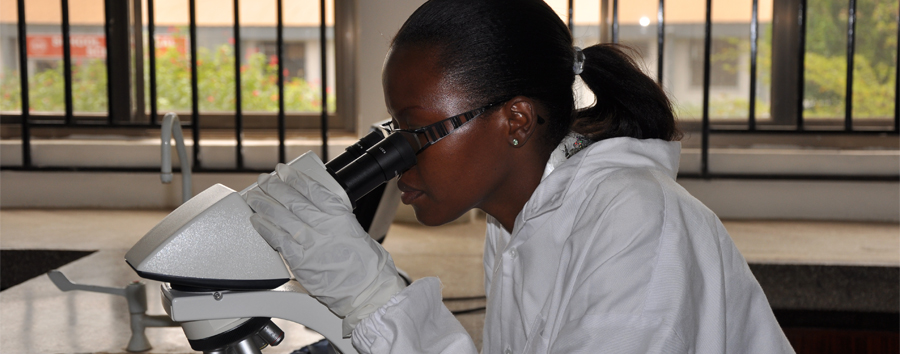
A recent convening organized by the German Research Foundation (DFG), the Science Granting Councils Initiative (SGCI) and Rwanda’s National Council for Science and Technology (NCST) explored the links between basic research and development challenges in Africa, the role of a strong science-policy nexus and how to pragmatically fix the all too familiar leaky pipeline of women in Science, Technology, Engineering and Mathematics (STEM).
The Science Africa Workshop on Pan-African Initiatives for Research Capacity Building, a pre-event of the Next Einstein Forum Global Gathering, brought together 69 participants from national ministries, research funding agencies and science, technology and innovation actors including; African Institute for Mathematical Sciences (AIMS), Climate Competence Centers in West and Southern Africa (WASCAL and SASSCAL), the African Research Universities Alliance (ARUA), African Academy of Science (AAS), African Women in Agricultural Research and Development (AWARD), National Industrial Research and Development Agency (NIRDA), Regional Universities Forum for Capacity Building in Agriculture (RUFORUM) and the Association of Commonwealth Universities (ACU).
Highlighting the role of civil society in building capacity for research in Africa, AWARD Director, Dr. Wanjiru Kamau-Rutenberg, emphasized the critical role of gender responsiveness. She stated that programs designed to support women’s career development should pay careful attention to the fact that women often bear the brunt of responsibility for taking care of children and their homes, thus, a holistic support system is critical for them. She drew attention to both an Agricultural Science and Technology Indicators (ASTI) study and a 2014 study in the United States which articulate that ‘half-half’ support that compels women to make a choice between their family obligations and career only create more harm than good.
To plug the pipeline, the forum yielded some recommendations with a focus on coordination, effective partnerships, and financing of research initiatives. Notable among the recommendations include:
- Acknowledging the excellence of African research and researchers
- Recognizing the role of science granting councils and development partners
- Leveraging higher learning institutions as a gateway to and for research
- Developing effective inclusive science policies
- Adopting an engendered and holistic approach to the research and innovation pipeline
- Harnessing targeted interventions to advance national and international collaboration
- Innovative doctoral training methodologies
German Research Foundation (DFG) is a self-governed organization that supports research in science, engineering, and humanities through a variety of grant programs, prizes and by funding infrastructure.
Science Granting Council Initiative (SGCI) is a multi-funder initiative that aims to strengthen the capacities of 15 science granting councils in sub-Saharan Africa to support research and evidence-based policies that will contribute to economic and social development.
National Council for Science and Technology (NCST) is a government agency mandated to facilitate and coordinate the development and implementation of policies and strategies for science and technology into the national development process.
